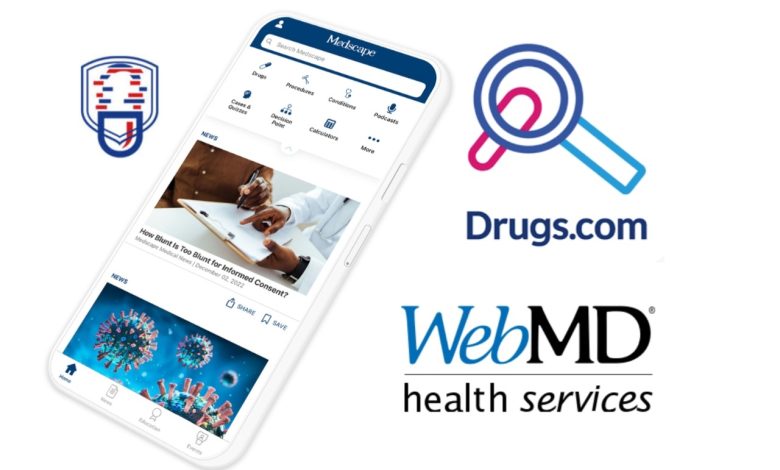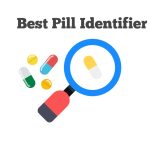Best Online Drug Interaction Checkers

Drug interactions occur when two or more medications are taken together, and their effects on the body are altered as a result. Drug interactions can have potentially harmful effects, including reducing the effectiveness of one or more medications, increasing the risk of side effects, or causing new side effects.
There are several types of drug interactions, including:
1. Pharmacokinetic interactions: These occur when one drug affects the absorption, distribution, metabolism, or excretion of another drug. For example, taking a medication that reduces the activity of liver enzymes that metabolize another medication can increase the blood levels of the second medication, leading to potential toxicity.
2. Pharmacodynamic interactions: These occur when one drug affects the way another drug works in the body. For example, taking two medications that lower blood pressure can cause an excessive drop in blood pressure, leading to dizziness, fainting, or other symptoms.
3. Combined toxicities: These occur when two drugs have toxic effects on the same organ or system in the body, leading to increased risk of side effects or toxicity.
To avoid drug interactions, it’s important to always inform healthcare providers of all medications, supplements, and herbal products being taken, including over-the-counter medications. It’s also important to read medication labels carefully and follow instructions for use.
In some cases, a healthcare provider may adjust medication dosages or switch to alternative medications to avoid potential drug interactions. If a person experiences any unusual symptoms or side effects while taking medications, they should contact their healthcare provider immediately.
How Common Are Drug Interactions
Drug interactions are relatively common, especially in people who take multiple medications or supplements. According to a review article published in the Journal of Clinical Pharmacy and Therapeutics, up to 70% of patients taking multiple medications are at risk of experiencing a drug interaction. This risk increases with the number of medications and the complexity of the medication regimen.
Drug interactions can occur in several ways, such as by altering the way a medication is metabolized, absorbed, or eliminated from the body. Some drug interactions may be minor and cause little or no harm, while others can be severe and potentially life-threatening.
It’s important to note that not all drug interactions are predictable or preventable, and some may only become apparent after a medication has been on the market for some time. That’s why it’s crucial to inform your healthcare provider about all the medications and supplements you are taking, including over-the-counter products, to minimize the risk of drug interactions.
Drug Interaction Checkers
Drug interaction checkers are online tools that allow people to check for potential interactions between different medications, supplements, and herbal products. These tools are typically easy to use and can provide important information about potential interactions, side effects, and other risks.
The best 3 drug interaction checkers based on accuracy and ease of use are:
1. Medscape Drug Interaction Checker: This tool allows users to enter up to 30 medications at a time to check for potential interactions. It provides detailed information on the severity of potential interactions, as well as any necessary precautions or monitoring recommendations.
The Medscape Drug Interaction Checker allows users to check for potential interactions between different medications, supplements, and herbal products. It is a free tool that can be accessed through the Medscape website.
To use the Medscape Drug Interaction Checker, follow these steps:
- Go to the Medscape website and create a free account if you do not already have one.
- Click on the “Drug Interaction Checker” tab in the top menu bar.
- Enter the name of the first medication or supplement in the search bar, and select the appropriate dosage form and strength.
- Repeat this process for each additional medication or supplement that you want to check.
- Click the “Check Interactions” button to generate a report of potential interactions between the medications or supplements.
The Medscape Drug Interaction Checker provides detailed information on potential interactions, including the severity of the interaction, any necessary precautions or monitoring recommendations, and potential alternatives. It also allows users to filter the results by severity level or drug class.
2. Drugs.com Interaction Checker: This tool allows users to enter up to 10 medications or supplements at a time to check for potential interactions. It provides information on the severity of potential interactions, as well as any necessary precautions or monitoring recommendations.
The Drugs.com Interaction Checker allows users to check for potential interactions between different medications, supplements, and herbal products. It is a free tool that can be accessed through the Drugs.com website.
To use the Drugs.com Interaction Checker, follow these steps:
- Go to the Drugs.com website and click on the “Drug Interactions” tab in the top menu bar.
- Enter the name of the first medication or supplement in the search bar, and select the appropriate dosage form and strength.
- Repeat this process for each additional medication or supplement that you want to check.
- Click the “Check for Interactions” button to generate a report of potential interactions between the medications or supplements.
The Drugs.com Interaction Checker provides detailed information on potential interactions, including the severity of the interaction, any necessary precautions or monitoring recommendations, and potential alternatives. It also allows users to filter the results by severity level or drug class.
3. WebMD Drug Interaction Checker: This tool allows users to enter up to four medications at a time to check for potential interactions. It provides information on the severity of potential interactions, as well as any necessary precautions or monitoring recommendations.
The WebMD Drug Interaction Checker also allows users to check for potential interactions between different medications, supplements, and herbal products. It is a free tool that can be accessed through the WebMD website.
To use the WebMD Drug Interaction Checker, follow these steps:
- Go to the WebMD website and click on the “Drugs & Supplements” tab in the top menu bar.
- Enter the name of the first medication or supplement in the search bar, and select the appropriate dosage form and strength.
- Repeat this process for each additional medication or supplement that you want to check.
- Click the “Check for Interactions” button to generate a report of potential interactions between the medications or supplements.
The WebMD Drug Interaction Checker provides detailed information on potential interactions, including the severity of the interaction, any necessary precautions or monitoring recommendations, and potential alternatives. It also allows users to filter the results by severity level or drug class.
It’s important to note that drug interaction checkers are not a substitute for professional medical advice, and people should always consult with a healthcare provider before starting or stopping any medications or supplements. Additionally, not all potential interactions may be listed in these tools, and some interactions may be rare or unpredictable.





